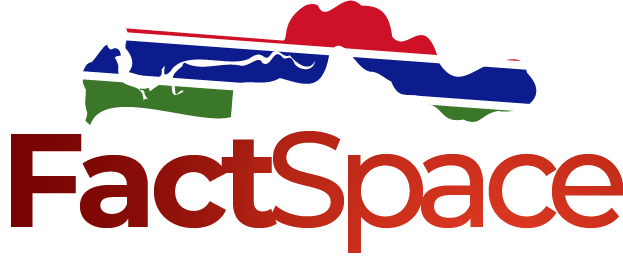The Gambia is a small, fragile country in West Africa, especially vulnerable to the impact of climate change.
The country is within the Sahel region with a sub-tropical climate characterized by a long dry season and a short rainy season. The country of about 2.4 million people is highly dependent on agriculture which employs over 68% of its population and contributes about 26% to the Gross Domestic Product (GDP).
Alieu Badara Sowe has 5 hectares of land where he cultivates watermelon, groundnut and sesame. During the dry season, Alieu grows vegetables to keep himself busy. He has been farming for more than three years now.
In his view, there are many factors contributing to the increase in temperature and decrease in rainfall: “tree felling and other human-induced activities are the cause of our problems. We are fast losing our forest cover which is contributing to the erratic rainfall patterns we are challenged with. This is affecting the productivity levels of our farmlands.” He said.
The agriculture sector is predominantly subsistence farming and dependent on rains. The country in the past registered over 2000mm of rainfall but faced a drastic reduction to about 800mm in recent years. There is a visible shift and a shortened wet season.
The country used to experience rains from May to October years ago however, the current rainfall patterns are from July to October, which is shorter and more erratic in nature.
Over the years, there has been a significant decline in agricultural productivity in The Gambia. The impact of Climate Change continues to threaten lives and livelihoods thereby causing excessive pressure on forest resources, high demand for farmlands, low yields with fewer alternative sources of livelihood.
Climate change is caused by global warming which is caused by the concentration of greenhouse gases in the atmosphere.
The greenhouse gases such as carbon dioxide, methane, nitrous oxide concentrate in the atmosphere and trap heat and do not allow it to escape thereby warming the earth.
Omar Malmo Sambou is an Environmental Science Lecturer at The University of The Gambia and a sustainability practitioner and he laments that: “Saltwater intrusion into the freshwater ecologies where rice production is high is causing an unsupportable burden to rice growers as they lose farmlands to saltwater.”
Sambou says there is a need for better policies by governments that are tailored to the current climate realities of the country to prevent significant impact from the phenomenon.
According to the climate advocate, the Gambia has to prioritise “investing in renewable energy and discourage the use of fossil fuels for energy generation to reduce emissions.
Meanwhile, Alieu Badara Sowe who is feeling the impact of climate change as a young farmer is calling for better support for the agriculture sector in the form of fertilisers and techniques relating to climate-smart agriculture to build their resilience capacity.
Fertilizers containing nitrogen also cause global warming in the form of nitrous oxides which is greenhouse gas like methane from livestock farming, Environmental Science Lecturer Omar Malmo Sambou explained.
He says fertilizer application on farmlands should be based on empirical evidence from scientific research. But he is worried that key decisions being taken to mitigate climate change are becoming more political than based on science.
There is still a gap to fill: “Farmers need more extension services on issues of climate change and climate-smart agriculture. There is still an awareness gap as some still doubt the phenomenon. The Gambia needs both national and international support and Climate financing to enable the realization of its highly ambitious national fight against climate change.” Omar Malmo Sambou emphasised.
By: Awa Macalo




